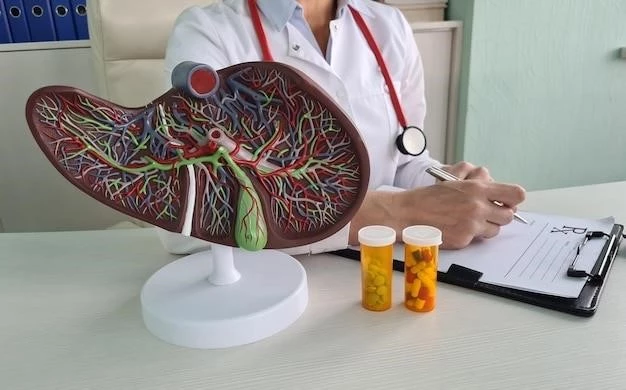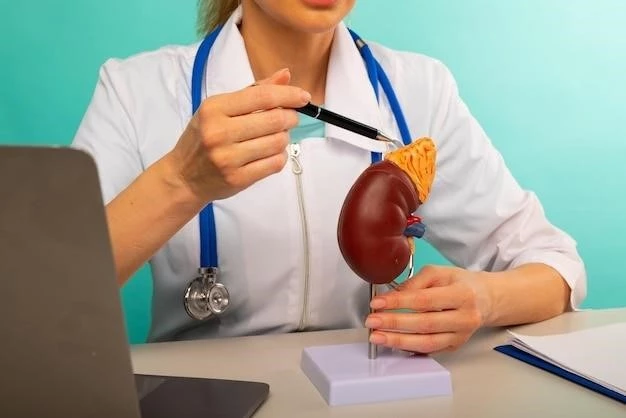Introduction to Thymic Carcinoma
Thymic carcinoma is a rare and aggressive cancer that often presents at an advanced stage․ It is crucial to understand its characteristics, diagnosis, and treatment options․
Definition and Rarity
Thymic carcinoma is an aggressive cancer originating from the thymus gland, primarily located in the anterior mediastinum․ This type of cancer is considered rare, with a lower incidence rate compared to other malignancies affecting the thoracic region․
Diagnosis and Staging of Thymic Carcinoma
Thymic carcinoma is often diagnosed at an advanced stage, impacting treatment and prognosis․ Diagnosis involves various methods including imaging and biopsies to determine the extent of the disease․
Clinical Presentation
Thymic carcinoma often presents insidiously with symptoms such as chest pain, cough, and shortness of breath․ As the disease progresses, patients may experience signs of superior vena cava syndrome and other complications related to the tumor’s location and growth․
Diagnostic Methods
Diagnosing thymic carcinoma involves a variety of methods including imaging tests like CT scans and MRIs, as well as biopsy procedures to confirm the presence of cancerous cells in the thymus gland․ These diagnostic tools are crucial in determining the extent and characteristics of the disease․

Treatment Approaches for Thymic Carcinoma
Thymic carcinoma treatment involves a multimodality approach incorporating surgery, chemotherapy, and radiation therapy to manage the disease effectively․
Surgical Interventions
Surgical interventions play a crucial role in the management of thymic carcinoma, aiming to remove the tumor and surrounding tissue to achieve the best possible outcomes for patients․ The type and extent of surgery depend on the stage and location of the cancer․
Chemotherapy and Radiation Therapy
Chemotherapy and radiation therapy are essential components of thymic carcinoma treatment, often used in combination or sequentially to target cancer cells and prevent recurrence․ These modalities aim to improve overall survival rates and enhance patient outcomes․
Prognosis and Survival Rates
The 5-year survival rate for thymic carcinoma is typically in the range of 30% to 50%․ Survival rates vary based on the histological type and stage of the cancer, impacting long-term prognosis․
5-Year Survival Rate Statistics
The 5-year survival rate for thymic carcinoma ranges between 30% to 50%٫ varying based on histological type and disease stage․ This statistic highlights the challenges and outcomes associated with this rare and aggressive cancer․

Types and Histological Variants of Thymic Carcinoma
Thymic carcinoma is a rare cancer that originates from the thymus gland, typically manifesting in various histological variants such as squamous cell carcinoma and lymphoepithelioma-like carcinoma;
Squamous Cell Carcinoma
Squamous cell carcinoma is one of the histological variants of thymic carcinoma, characterized by malignant epithelial cells exhibiting cytologic features typical of this type of cancer․ Understanding its unique properties is crucial for accurate diagnosis and treatment planning․
Lymphoepithelioma-like Carcinoma
Lymphoepithelioma-like carcinoma is a distinctive histological variant of thymic carcinoma characterized by a prominent lymphoid stroma surrounding epithelial cells․ Understanding the unique features of this variant is crucial for accurate diagnosis and appropriate treatment selection․
Association with Other Diseases and Syndromes
Thymic carcinoma is not strongly associated with Myasthenia Gravis or other autoimmune diseases commonly linked with thymomas․ Recent research suggests different impacts on younger individuals․
Myasthenia Gravis and Autoimmune Diseases
Thymic carcinoma is not strongly associated with Myasthenia Gravis or other autoimmune diseases commonly linked with thymomas․ Recent research suggests different impacts on younger individuals․
Research and Development in Thymic Carcinoma
Thymic carcinoma is a rare and aggressive cancer type that requires ongoing research for therapeutic advancements and better clinical outcomes․
Therapeutics and Clinical Trials
Ongoing research in thymic carcinoma focuses on developing advanced therapeutics and conducting clinical trials to explore new treatment options and enhance patient outcomes․ These efforts aim to address the challenges associated with this rare and aggressive form of cancer․
Support Organizations and Coping Strategies
Foundation for Thymic Cancer Research provides valuable support and resources for individuals affected by thymic carcinoma, aiding in coping strategies and fostering a community dedicated to addressing the challenges of this rare cancer․
Foundation for Thymic Cancer Research
The Foundation for Thymic Cancer Research is a vital resource for individuals affected by thymic carcinoma, offering support, promoting awareness, and funding research initiatives to advance the understanding and treatment of this rare and aggressive cancer․
